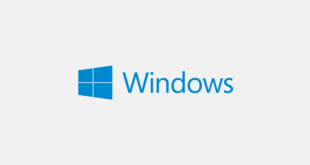This month we have seen the release of a handful of ultra fast Solid State Drives, and Kitguru has been on hand to review them in recent weeks. Today we are looking at the latest drive from market leader OCZ, the Agility 3 240GB. The Agility 3 has been released to compliment their recent Vertex 3 and Vertex 3 MAX IOPS drives, offering high performance but at a reduced price point.
The Agility 3 SATA III series of drives are designed to offer a tempting combination of performance and value. While the Vertex 3 240GB MAX IOPS is retailing for around £470 in the UK, the Agility 3 240GB will be sold for almost £100 less, retailing at around £378 inc vat.
As they are targeting the value oriented performance market this means OCZ will be releasing a 60GB version of the Agility 3, alongside the 120GB and the high end 240GB (which we are reviewing today).
The Agility 3 has rated speeds of up to 525MB/s read and 500 MB/S write with IOPS 4k performance rated to 35,000 read and 45,000 write. The 120GB version of the drive has a IOPS 4k rating of 20,000 read and 50,000 write. The 60GB version has an IOPS 4k rating of 10,000 read and 50,000 write.
| Product | OCZ Agility 3 |
| Interface | Sata III |
| Controller | Sandforce 2281 |
| Size | 240GB |
| SSD Type | Multi Level Cell |
| Trim Support | Yes |
| Read speed (rated) | 525MB/s |
| Write speed (rated) | 500MB/s |
| MBTF | 2 Million hours |
All of the SandForce SF-2000 series controllers still utilise the patented DuraWrite technology, on the fly compression which reduces the size of the data written to the drive. When this is paired up with wear leveling and intelligent block management the drive will require fewer write cycles during regular use.
 KitGuru KitGuru.net – Tech News | Hardware News | Hardware Reviews | IOS | Mobile | Gaming | Graphics Cards
KitGuru KitGuru.net – Tech News | Hardware News | Hardware Reviews | IOS | Mobile | Gaming | Graphics Cards



£380, thats a really good price. The 120gb sounds good to me. Any ideas of the release date? this week or after computex?
this is certainly going to kill the vertex 2, which I would guess is intentional.
110 for a 60gb. that would be a wonderful boot drive and size.
Under £400 for a 240GB, is this the first time for one of the latest 2281 powered drives? I think thats quite an achievement.
120gb would be my next purchase, but I might go for vertex 3. not sure yet.
SSDS make such a difference. I added a cheap 40GB SSD to my machine recently (intel) and it really has transformed it.
I thought 40GB would be ok, but its honestly a pain in the ass. I have to keep installed programs to D drive and sometimes I forget as it autopmatically stores to program files.
Need an upgrade. but these are still expensive.
I dont agree with 60GB being enough for Windows 7 boot up. 120gb would be my minimum, but maybe im weird, I hear people use 40GB all teh time.
No one really wants a 40GB for a boot drive. its too small. If its the only drive you have then kiss goodbye to things like adobe suite as it would eat most of it up.
60GB is doable. I ran tests myself recently. installing my office suite, updates. SP1. a few apps I use, and it was around 20GB free on a 60GB Drive. that would be ok. but its still tight.
120gb is ideal, anything extra is gravy. with a nice 1TB or 2TB as a file drive.
Id like to see a review of the 120gb version, £190 is a hell of a price for this.
These are still some way off being mainstream however. I dont know anyone who owns an SSD.
Killer performance, still a lot of cash, but im converted. I bought a kingston value drive last week :p
Excellent, ill be ordering two of the 120gbs for raid next month
will be ordering a 60GB when its available here. nice review, thanks
240GB, wow, what I wouldnt give for one of those in my system.
I have an old kingston drive, I still really like it, hasnt let me down yet
I wonder how many people reading kitguru own an SSD. Id say the percentage would be high